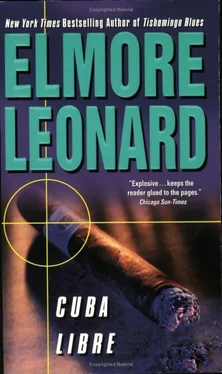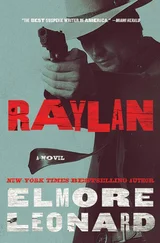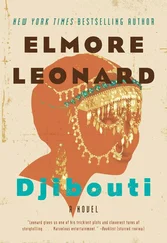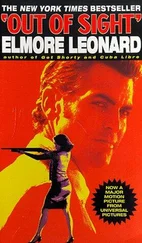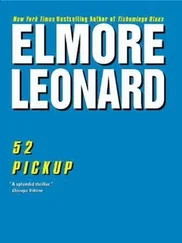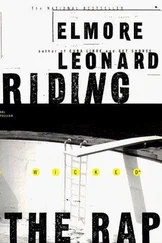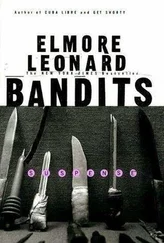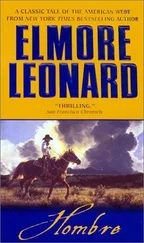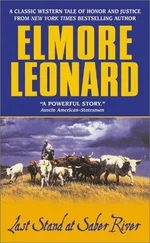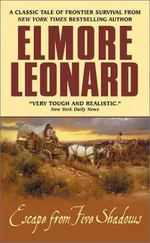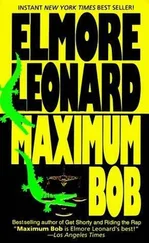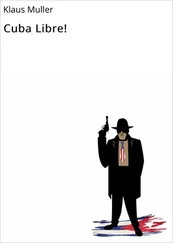Elmore Leonard - Cuba Libre
Здесь есть возможность читать онлайн «Elmore Leonard - Cuba Libre» весь текст электронной книги совершенно бесплатно (целиком полную версию без сокращений). В некоторых случаях можно слушать аудио, скачать через торрент в формате fb2 и присутствует краткое содержание. Жанр: Исторические приключения, на английском языке. Описание произведения, (предисловие) а так же отзывы посетителей доступны на портале библиотеки ЛибКат.
- Название:Cuba Libre
- Автор:
- Жанр:
- Год:неизвестен
- ISBN:нет данных
- Рейтинг книги:5 / 5. Голосов: 1
-
Избранное:Добавить в избранное
- Отзывы:
-
Ваша оценка:
- 100
- 1
- 2
- 3
- 4
- 5
Cuba Libre: краткое содержание, описание и аннотация
Предлагаем к чтению аннотацию, описание, краткое содержание или предисловие (зависит от того, что написал сам автор книги «Cuba Libre»). Если вы не нашли необходимую информацию о книге — напишите в комментариях, мы постараемся отыскать её.
Cuba Libre — читать онлайн бесплатно полную книгу (весь текст) целиком
Ниже представлен текст книги, разбитый по страницам. Система сохранения места последней прочитанной страницы, позволяет с удобством читать онлайн бесплатно книгу «Cuba Libre», без необходимости каждый раз заново искать на чём Вы остановились. Поставьте закладку, и сможете в любой момент перейти на страницу, на которой закончили чтение.
Интервал:
Закладка:
Virgil, with Huntington's marines, went ashore on the tenth. First thing, they burned the Spanish barracks and huts on the beach, in case they were contaminated by yellow fever. Then they looked up at that blockhouse on the hill. It had been shelled good by the cruiser Yankee, which had run the dons out of there. But they were still around in force, so holding the blockhouse would not be a picnic.
Which turned out to be the case, mainly on account of the dense green cover on this hill and the ones nearby. Once the dons began to skirmish they kept at it three days and nights, laying down He on the blockhouse and outposts that had been set up. Virgil and his mates kept waiting for an all-out assault that never came, the dons not anxious to charge the marines' automatic Colt machine guns or the Hotchkiss 3inchers. But they sure raised hell firing Mausers from cover, with their smokeless rounds that never told where the shooter was. Soon they were sniping from up on nearby hills that were higher than the blockhouse hill and gave the snipers a birdseye view of the marines. Any time the fleet turned its big rifles on the hills it would clear them out for a time, then pretty soon they'd come sneaking back. These dons did not lack for courage, regulars in their pinstripe uniforms and funny-looking straw hats. Virgil wished they were Volunteers or Guardias, ones he had reason to hate. Huntington got tired of staying put and sent two companies of marines and about fifty insurgents to Cuzco, six miles east, where there was a heliograph station they used to blink messages to Caimanera, also a well that supplied the dons with their drinking water and five hundred dug-in Spanish troops. Virgil and his mates laid down fire with their Lee rifles, taking trenches and a blockhouse, fought the dons from eleven in the morning till mid-afternoon, finally to drive them off and blow up the well, losing two marines killed and six wounded. Virgil's first sergeant, a man name of Rawley, tallied the enemy casualties and came up with "Sixty-two garlics killed and a hunnert and fifty put on stretchers."
It sure amazed Virgil. He said, "They had position on us, they had numbers-how'd we beat 'em so lopsided?"
"Cause we're fucking marines," Rawley said. "Why do you think?"
Maybe it was true.
Later on Rawley sent Virgil to flush out a sniper up on high ground giving them trouble and said, "Take these niggers with you." Three mambis they were using as scouts. "They ain't worth a shit as soldiers, but they're all I can spare."
"They've been fighting a war," Virgil said, "for three years."
The sergeant said, "Yeah? And they didn't win, did they?" Virgil went up the hill thinking of things to say to Rawley. The hell do you know about it? Shit, you've only been in Cuba five days. You don't even know what you're talking about to say something like that. What-they're not soldiers 'cause they don't wear fancy uniforms? You ever fight with nothing but a machete? In your bare feet? Virgil, thinking instead of paying attention, was hit before he heard that keening whine of a gunshot from way off and went down with a Mauser round, goddamn it, through his side.
The mambls carried him back. Colonel Huntington gave Virgil a pat on the shoulder, telling him, "Hang on, son, it missed your vitals and you are going to make it." That night Virgil was aboard the hospital ship Solace, his war over.
TWENTY-SIX
"In all the rousing accounts you read in the newspapers," Neely said to Rollie Boudreaux, in the bar of the Hotel Inglaterra, "and in the illustrations of the glorious charge, Teddy is leading his Rough Riders up San Juan Hill. In some accounts they're even on horseback. But there was no mounted cavalry during the campaign; all the horses had been left at Port Tampa, though some staff and division officers had horses. Teddy, as a matter of fact, brought along two, one called Little Texas and another, Rainin-the-Face, named for an Indian Chief. Teddy did take Kettle Hill, but by the time he got to the San Juan Heights the battle was almost over."
Boudreaux appeared, in his usual calm manner, to be less than interested. He looked not at Neely but across the formal garden in the center of the room, to the arched entrance and an area of the lobby beyond, polished tiles in Moorish patterns halfway up the walls. So far this morning they had the barroom to themselves. Boudreaux had mentioned that Spanish officers, now with the war over, came by in the afternoon. Neely swirled the ice in his whiskey, staring at it.
"I have nothing against Teddy Roosevelt personally, you understand. He was an inspiring leader once in the fight, truly a brave man. What I resent is his getting all the glory, much of it thanks to Harding Davis, whom you'd think was Teddy's personal press agent. That Eastern Old School crowd hung together in ways you'd have thought the war was staged for their benefit and Teddy won it almost single-handedly." Neely paused. "I take it you understand the significance of San Juan Hill."
He waited.
Boudreaux turned his head now to look at him and it was encouraging, even though the man said nothing.
"San Juan," Neely went on, because he wanted to tell it, present this man with the facts, "was part of the outer defense of Santiago, the port where the Spanish fleet was bottled up, the objective of the campaign." Neely paused again. "I take it you're expecting someone."
Boudreaux raised his eyebrows. "Well, now, that's observant of you, Mr. Tucker."
"If I'm boring you, please tell me."
"Don't worry, I will," Boudreaux said, and then shrugged. "You can continue, if you want."
Neely hung on to his composure. He said, "Thank you," and cleared his throat. "I saw it as ironic that regular-army Negro soldiers, members of the 9^ th and 10^ th Colored Cavalry, were made to unload the Rough Riders' gear from the ship while Teddy and his volunteers, amateurs, really, marched off to meet the enemy. And when they walked into an ambush, at Las Guasimas, it was the colored boys along with the 71^ st Infantry who came along to prevent Teddy's boys from being wiped out. How could something like this happen? Incompetent leadership. Remember "Fighting Joe' Wheeler, the Confederate general? He was in charge of cavalry, an old man with a white beard. At Las Guasimas, as the dons finally retreated, "Fighting Joe," living in the past, was heard to say, "Boys, we got the Yankees on the run!" American soldiers won this war, Mr. Boudreaux, despite the incompetence of their leaders, especially General Shafter, who was in command. He did suffer from gout and a touch of malaria; all the same even Teddy thought him utterly inefficient. The food was awful or nonexistent. The supply line from Siboney to the front never better than a trickle of whatever was needed to fight a war. Medical facilities were a joke-though not to the wounded lying out in the sun. We lost over two hundred men killed and another twelve hundred wounded. All abdominal wounds were fatal."
"That's interesting," Boudreaux said.
The only rise Neely was able to get from him.
"Why did our army and our navy appear to have separate goals? Why didn't Sampson's fleet bombard San Juan Heights before the assault?"
Boudreaux said, "You're not asking me, are you?"
"We had seventeen thousand troops in the campaign. A third of them were sent to take a village called El Caney, defended by five hundred Spanish soldiers. Our boys spent nine hours at the task, when they could've been used in the assault on San Juan Heights."
Boudreaux yawned.
He actually did, yawned in Neely's face. It did not deter the Chicago Times correspondent.
"The brigade under General Hawkins was to lead the assault but due to mix-ups and misgivings-again, poor leadership-it was delayed, the troops pinned down. But then a hero emerged, the brigade quartermaster, of all people, a Lieutenant Jules Ord, jumped up to lead the charge, inspiring men of the 6^ th and 16^ th Regiments, yelling, "Come on, you fellows! Come on! We can't stop here!" They charged into the withering fire of Spanish Mausers and took the hill. This day to mark in our memories, July first, 1898." Boudreaux raised his glass. "To our boys."
Читать дальшеИнтервал:
Закладка:
Похожие книги на «Cuba Libre»
Представляем Вашему вниманию похожие книги на «Cuba Libre» списком для выбора. Мы отобрали схожую по названию и смыслу литературу в надежде предоставить читателям больше вариантов отыскать новые, интересные, ещё непрочитанные произведения.
Обсуждение, отзывы о книге «Cuba Libre» и просто собственные мнения читателей. Оставьте ваши комментарии, напишите, что Вы думаете о произведении, его смысле или главных героях. Укажите что конкретно понравилось, а что нет, и почему Вы так считаете.
